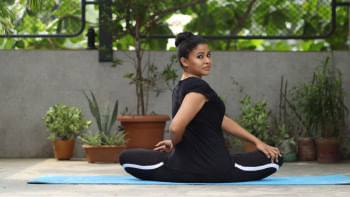Preventing dementia through yoga

As rates of dementia continue to rise worldwide, research is increasingly pointing to the role of lifestyle in protecting our health. Among the most powerful tools we have is yoga, not just as a physical practice but as a comprehensive system that enhances mental clarity, emotional balance, and neural function.
Yoga requires focused attention on multiple points at once: breath, alignment, movement, and internal body awareness. This complex engagement activates and strengthens various regions of the brain, building the kind of cognitive flexibility and resilience that guards against degeneration.
Every yoga practice begins with the breath. Conscious breathing stimulates the parasympathetic nervous system, calming the stress response that, when chronic, can contribute to memory loss and cognitive decline.
Deep, rhythmic breathing increases oxygen flow to the brain and improves circulation throughout the body. As the heart rate slows and the breath deepens, the brain receives more nourishment, helping maintain neural pathways and potentially creating new ones, critical for ageing with vitality and mental sharpness.
Another powerful aspect of yoga is its ability to reduce chronic stress, one of the most insidious contributors to cognitive dysfunction. High cortisol levels — produced during prolonged stress — can damage the hippocampus, the part of the brain responsible for memory and learning.
Yoga provides a safe, embodied way to discharge stress through movement, breathwork, and meditative practices, allowing the body to process and release tension before it becomes toxic. Over time, this strengthens emotional regulation and improves overall brain function.
Finally, yoga brings the practitioner into the present moment, training the mind to stay focused and aware. These mindfulness skills not only combat mental fog and distraction but also protect against the kind of mental disuse that can hasten dementia.
Like any muscle, the brain needs stimulation to stay strong, and yoga, with its combination of physical challenge, breath control, and internal focus, is a multidimensional workout for body and mind. It is important that we recognise and honour yoga as not just a tool for flexibility or relaxation, but as a powerful practice for long-term cognitive health and clarity.
Photo: LS Archive/ Sazzad Ibne Sayed

 For all latest news, follow The Daily Star's Google News channel.
For all latest news, follow The Daily Star's Google News channel. 










Comments